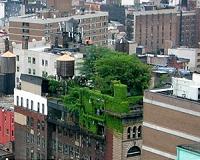 |
Beijing (AFP) April 28, 2010 Authorities in China have seized more than seven million toxic disposable food containers, state media reported Wednesday, in the latest product safety scare to hit the nation. Seven companies in the eastern province of Jiangxi were busted for manufacturing the long-banned foam boxes using plastic waste and fluorescent whitening agents, the official China Daily newspaper said. Disposable food containers are routinely used by restaurants across China. Authorities banned foam boxes in 1999, but they can still be found in many parts of the country. The warmth of a hot meal causes toxic elements used to make the foam containers to seep into the food. Those substances can damage people's livers, kidneys and reproductive systems. According to the report, authorities seized a total of 7.2 million unsafe foam boxes in the provincial capital Nanchang and enough raw materials to make 10 million more. They were found on sale in the city and in other areas of eastern China including Shanghai. Employees of the Hong Kong-based International Food Packaging Association had visited a local market in Nanchang before the raids and reported foam boxes were "giving off a heavy smell of plastic waste," the report said. China is regularly hit by product safety scandals despite government pledges to clean up the food industry. Last month, authorities ordered inspections of cooking oil nationwide after reports said up to one-tenth of China's supplies contained cancer-causing agents. Peddlers in the central province of Hunan were also reportedly found soaking dry soybeans in green dye and selling them as fresh green beans. And in 2008, at least six babies died and 300,000 others fell ill after consuming milk products tainted with the industrial chemical melamine.
Share This Article With Planet Earth
Related Links Farming Today - Suppliers and Technology
 Rooftop farming booming in New York
Rooftop farming booming in New YorkNew York (AFP) April 23, 2010 Urban farming is a growth industry in New York city's concrete jungle, and with little open land free agriculturalists and beekeepers have taken to the rooftops to pursue their passion. Andrew Cote uses the emergency fire ladder to climb up to the roof of his East Village building, where he tends to 250 bee hives. Cote, a professor of Japanese literature doubles up as president of the Ne ... read more |
|
| The content herein, unless otherwise known to be public domain, are Copyright 1995-2010 - SpaceDaily. AFP and UPI Wire Stories are copyright Agence France-Presse and United Press International. ESA Portal Reports are copyright European Space Agency. All NASA sourced material is public domain. Additional copyrights may apply in whole or part to other bona fide parties. Advertising does not imply endorsement,agreement or approval of any opinions, statements or information provided by SpaceDaily on any Web page published or hosted by SpaceDaily. Privacy Statement |